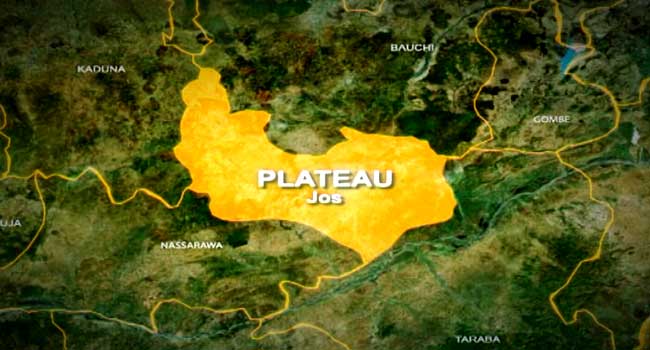By Reuben Emmanuel, Esq.
In the aftermath of every violent incident in Plateau State and across several communities in the Middle Belt, we find ourselves confronted not only by loss and grief, but also by a deepening silence. This silence is not the peaceful kind that follows resolution. It is the silence of uncertainty, of withheld truth, of pain that has not been fully acknowledged.
Those of us working in humanitarian response and peacebuilding are often told that we must remain neutral. That we must refrain from speaking in the midst of political or communal crises. That our role is to stay behind the scenes, quietly facilitating dialogue, strengthening social cohesion, supporting survivors, and investing in early warning and conflict prevention mechanisms. And in many ways, that is true. Our work must be impartial. Our methods must be inclusive. Our language must be careful. But it is also true that neutrality should never become complicity.
I have walked with communities through displacement and return. I have sat with families separated by conflict, led dialogues between youth and elders, worked alongside local NGOs, and engaged traditional rulers and security actors. I have helped communities navigate grief, loss, and the long journey of rebuilding trust. And what I have come to understand is that peace does not grow in silence. It begins with truth. It is sustained by justice. It is softened by mercy. And only then can we talk about sustainable peace.
The situation in Plateau is complex. The history is layered. The actors are many. There is a real risk in over-simplifying the nature of the violence. There is also a danger in how stories are told. Sometimes the framing of events becomes part of the problem. Words matter. Narratives matter. They shape perception. They can heal, but they can also harm.
It is essential that we create space for truth. Truth that is complete, not partial. Truth that does not shift blame or generalise communities. The pursuit of truth in conflict settings is difficult, but necessary. It involves listening to those who are often unheard. It involves acknowledging systemic failures. It involves recognising that pain exists on many sides. It is only by honouring truth that we create a foundation strong enough to hold the weight of peace.
Once truth is established, justice must follow. But justice must be rooted in fairness, in accountability, and in the protection of human dignity. Communities need to see that wrongdoings are addressed, that no one is above the law, and that victims are not forgotten. The rule of law must be visible, accessible, and responsive. It cannot be selective. It must apply across boundaries, identities, and political interests. Justice is not only punitive. It is also restorative. It helps to rebuild relationships that violence has broken.
But even justice is not enough on its own. Mercy is needed. Not the absence of accountability, but the presence of compassion. Mercy opens space for dialogue. It allows for reintegration. It humanises those who have been dehumanised. In my work across the Northeast and North Central regions, I have seen how moments of mercy between individuals and groups create opportunities for peace that formal mechanisms alone could not deliver.
Peace itself is not a single moment. It is a process. It is slow. It is delicate. It requires investment. Not only financial investment, but emotional and social investment from everyone involved. Peacebuilding is not a technical exercise. It is deeply human. It happens in conversations, in schools, in religious gatherings, in homes, and in quiet acts of forgiveness and courage.
And yet, too often, peacebuilders and humanitarian workers are left to carry this burden quietly. We show up in crisis, we respond, we support, but we also absorb a great deal of the trauma we encounter. Sometimes after facilitating trauma healing sessions, we ourselves are in need of healing. It is important to remember that those who are helping others to be resilient must also be supported in their own resilience. Our work is meaningful, but it is not without cost.
There is also a wider call here. We must resist framing every crisis in purely ethnic or religious terms. These labels do not always reflect the full story. They reduce people to categories, and they often mask underlying drivers like competition over land, poverty, youth marginalisation, climate pressures, governance gaps, and historical grievances. We must look beyond headlines and see the human stories underneath.
To our partners and donors, peacebuilding is not a soft or optional component of aid. It is central. It is the bridge between emergency response and long-term recovery. Without it, cycles of violence will continue. With it, communities have the chance to rebuild not just their homes but their sense of shared humanity.
To those working tirelessly across Nigeria to hold fragile peace, your work is seen. You are not alone. You are the ones mediating, counselling, protecting, and guiding communities toward hope. You are not building projects. You are building the future.
Peace requires truth. It demands justice. It invites mercy. It relies on people. People who are willing to show up, speak honestly, listen deeply, and walk with others through difficulty.
If we are willing to walk that road together, then perhaps what comes out of Plateau and similar places will no longer be stories of destruction, but of restoration. Not of forgotten pain, but of remembered strength. Not of conflict, but of a new kind of peace—one that is rooted, inclusive, and lasting.
And I believe that is still possible.
Reuben Emmanuel, Esq.
I speak as a peacebuilder, a legal advocate, and more importantly, as a human being.
Published on April 16, 2025
count | 177

Recent Comments
Mwanchuel Daniel PamMarch 8, 2024 at 11:06 pm
Bob WayasNovember 6, 2023 at 5:30 am
JosephNovember 5, 2023 at 3:47 am